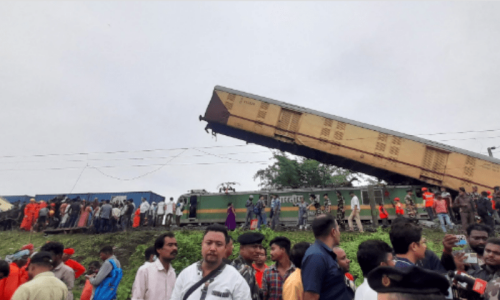STILL they keep coming. Only days after two boats carrying migrants to Europe capsized off the coast of Italy, drowning over 500 people, the Sicilian island of Lampedusa remains on alert for more arrivals, many in desperate state.
It has become a tragic ritual. International traffickers cram thousands of men, women and children, seeking escape from grinding poverty, wars and conflict, into rickety, overcrowded boats which frequently capsize just off the European coast.
Italian and Maltese ships — backed by helicopters — scramble to the scene, searching in darkness for the shipwrecks. Many drown. Those who survive are crowded into refugee centres in Lampedusa where they often remain in limbo as their fate is discussed by government authorities.
Migrants have been dying in attempts to cross the Mediterranean for years, turning the sea into a graveyard of dreams. According to Malta’s Prime Minister Joseph Muscat: “As things stand we are just building a cemetery within our Mediterranean sea.”
The tragedy has been going on for years. Last year, according to human rights groups, some 1500 migrants perished in the Mediterranean Sea. Over the past 20 years, more than 20,000 migrants have lost their lives in the same waters, according to the International Organisation for Migration. Experts warn that given the crisis in Syria, the influx will continue.
Europe’s reaction to the crisis has been mixed. Key questions of whether the European Union (EU) can do more to open its gates to the huddled masses seeking safe haven in Europe remain unanswered. Many in Europe of course bemoan the humanitarian tragedy and believe the EU should have a more open immigration policy. For the moment, however, the focus is on building stronger border controls, not changing immigration rules which remain a national competence.
It is true that there are no easy answers. European leaders are struggling to balance political pressures to restrict migrant numbers with the need to assist those desperate enough to risk such a perilous journey. In recent years, the EU has invested millions to prevent unwanted immigration. The measures have included deploying police units to the external borders, building fences and using satellite technology to monitor refugee routes.
There are plans to bolster EU search and rescue operations by Frontex, the EU’s border control agency, to ensure that more migrants can be rescued.
The asylum crisis is exacerbating Europe’s widening north-south divide. Countries in Europe’s south which are bearing the brunt of mass migration — and have also been hardest hit by the financial crisis — want other EU countries to share the burden, financially and with resettling migrants.
But with anti-immigration parties on the rise in Europe, northern European countries are reluctant to take steps that could increase immigration to their countries, or send the message to voters that they are not firm on migration.
Many also argue that the focus should be on helping dismantle human trafficking gangs in countries such as Libya and Tunisia. “We also need to intensify our efforts to fight criminal networks exploiting human despair so that they cannot continue to put people’s lives at risk in small, overcrowded and unseaworthy vessels,” according to the EU’s home affairs commissioner, Cecilia Malmström.
The focus on border security and the EU’s militarised ‘push-backs’ actually fuel, rather than curtail, the lucrative market for smuggling human cargo, say critics. Reinhard Marx, an attorney who advocates for reforms to the European asylum system, wrote in Der Spiegel that the EU’s current policy functions as “a job-creation scheme for human traffickers”.
François Crépeau, a UN rapporteur on the rights of migrants, has also warned that by closing their borders, EU countries are giving more power to traffickers. Instead, Europe should increase the opportunities for legal immigration, he argues. Belgian Foreign Minister Didier Reynders has also called for a “joined-up European policy of global immigration”, in which border controls are “just one element”.
But any changes to the current regime — a patchwork of national rules — are unlikely to happen overnight. And given the rise in popularity of Europe’s far-right parties, no EU government leader is in a mood to re-script the immigration saga. As such, the negative narrative on refugees and migrants is gaining traction across Europe.
France’s National Front party has come out top in a poll on how French voters intend to cast their ballot in next year’s elections to the European Parliament. According to Manuel Valls, the French interior minister, “The threat is not just in France. I fear there is a risk that the extreme right and populists will gain real weight in the European Parliament.”
Geert Wilders, whose anti-Muslim rants have destroyed the Netherlands’ reputation for tolerance, is a popular politician in his home country — and is building alliances with other far-right politicians. Wilders and Marine Le Pen, the leader of the French National Front, have mooted the possibility of teaming up to campaign ahead of the European Parliament elections. In Britain, the eurosceptic, anti-immigration UK Independence Party came third in local elections in May. In Greece, the racist Golden Dawn party was only brought to heel recently when its leaders were arrested following the murder of a musician.
The problem is a global one. The US is struggling to deal with migrants from Latin America, with many politicians arguing for a tougher approach. Australia’s new government has warned it will not allow more migrants arriving by boats to land on its territory.
Europe may not be alone in its confused response to immigration. However, a more coherent and humanitarian European response would help change the global conversation on immigration.
The writer is Dawn’s correspondent in Brussels.







































